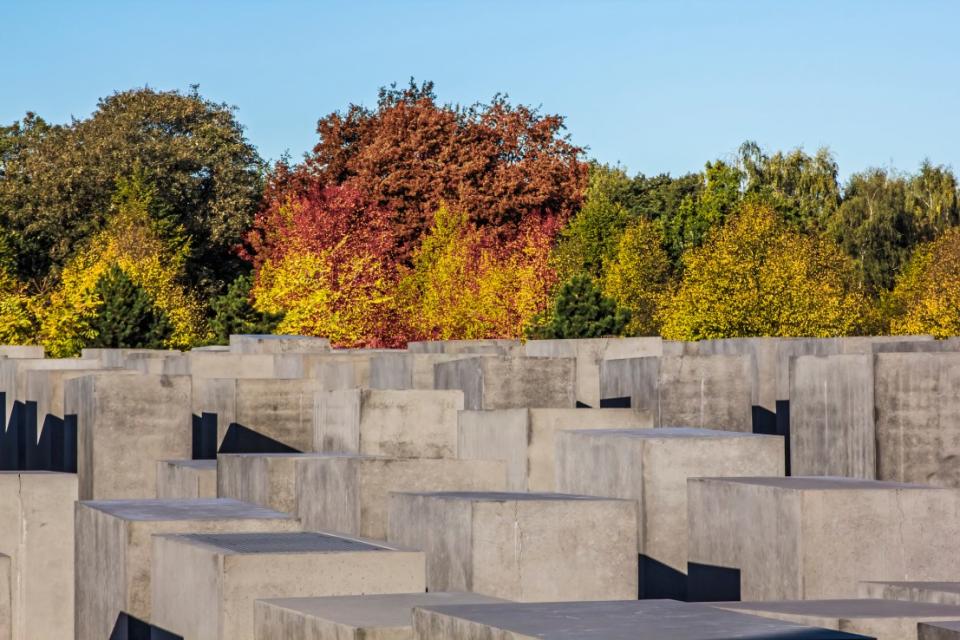Holocaust Memorial Day: Why prejudice concerns us all

Together, we can write a different story – one where prejudice is not a stain on our society, but a memory of a dark time we have overcome, write Laura Marks and Hifsa Haroon-Iqbal
As a direct result of the ongoing and tragic violent conflict playing out in Israel and Palestine, there has been a significant surge in antisemitic incidents and in anti-Muslim hatred in the UK. In Britain both communities are being ‘blamed’ for and linked with the conflict itself. There can be no equivocation here: abuse towards Jews and Muslims is an affront to our society. Together, we must confront this rise in hatred, defend our shared humanity and ensure the human rights of all.
Prejudice against Muslims and Jews is a disease that infects us all, irrespective of our backgrounds. It is a cancer that eats away at the very fabric of society, eroding trust and sowing division among communities. We must recognise that the fight against prejudice is not just the burden of a few or those directly affected by it. It is the responsibility of us all.
Jewish and Muslim communities have too often borne the brunt of prejudice. Our synagogues and mosques are desecrated, our traditions mocked, and often our very existence called into question. But when society tolerates discrimination against one group, it creates a fertile ground for this hatred to flourish against others. Today it is the kippah and the hijab, tomorrow it could be the turban, or indeed, the crucifix.
When we fail to stand up for the rights of others, we chip away at the foundations of our own. Our empathy as human beings should extend to every person facing discrimination, regardless of our own religious beliefs or cultural heritage. Both here and elsewhere discrimination is based not only on religion but on ethnicity, skin colour, sexual orientation and age. As famously expressed by Martin Luther King Jr: “Injustice anywhere is a threat to justice everywhere.”
So, why should someone who might not identify as Jewish or Muslim, care about prejudice directed at other communities? Here’s why: a society that allows its citizens to be persecuted on the basis of their faith, ethnicity, or any other characteristic is a society built on sand, vulnerable to the tides of intolerance. We must therefore speak out against antisemitism and anti-Muslim hatred not because it is someone else’s fight, but because it is our own. It is about allyship and standing up for the inherent dignity of every human being, regardless of their faith or background.
If we believe in justice and equality, then the demonisation of entire communities is wholly unacceptable. We must speak out against hate, challenge discriminatory practices, and hold ourselves and others accountable for perpetuating harmful biases. Together, we can write a different story – one where prejudice is not a stain on our society, but a memory of a dark time we have overcome.
The theme of Holocaust Memorial Day this year is the Fragility of Freedom. Embedded in the Universal Declaration of Human Rights, Article 18 is the freedom to practice our religion. Again and again, since the Declaration was signed, we see this freedom eroded – from the Holocaust itself, to present day. Targeting people for being Jewish, Muslim or any other faith is simply unacceptable.
When we isolate instances of prejudice as ‘their’ problem, we become bystanders, passively witnessing injustice. So, next time you see someone being targeted for their identity or religion, remember: your silence is not neutrality, it is complicity.
As allies in Nisa-Nashim, the Muslim/Jewish women’s network, we don’t only build friendships but we are stronger and less marginalised. All of us can raise our voices, not just for the sake of victims, but for the sake of us all. Amplify the voices of marginalised communities. Promote their stories, their humanity. We may not all share the same faith, skin colour or ethnic identity, but we share a common humanity. And that is something worth defending, together.
Laura Marks CBE is chair of the Holocaust Memorial Day Trust and co-founder of Nisa-Nashim, the Jewish/Muslim Women’s Network
Hifsa Haroon-Iqbal OBE is chair of trustees of Nisa-Nashim

 Yahoo Finance
Yahoo Finance 